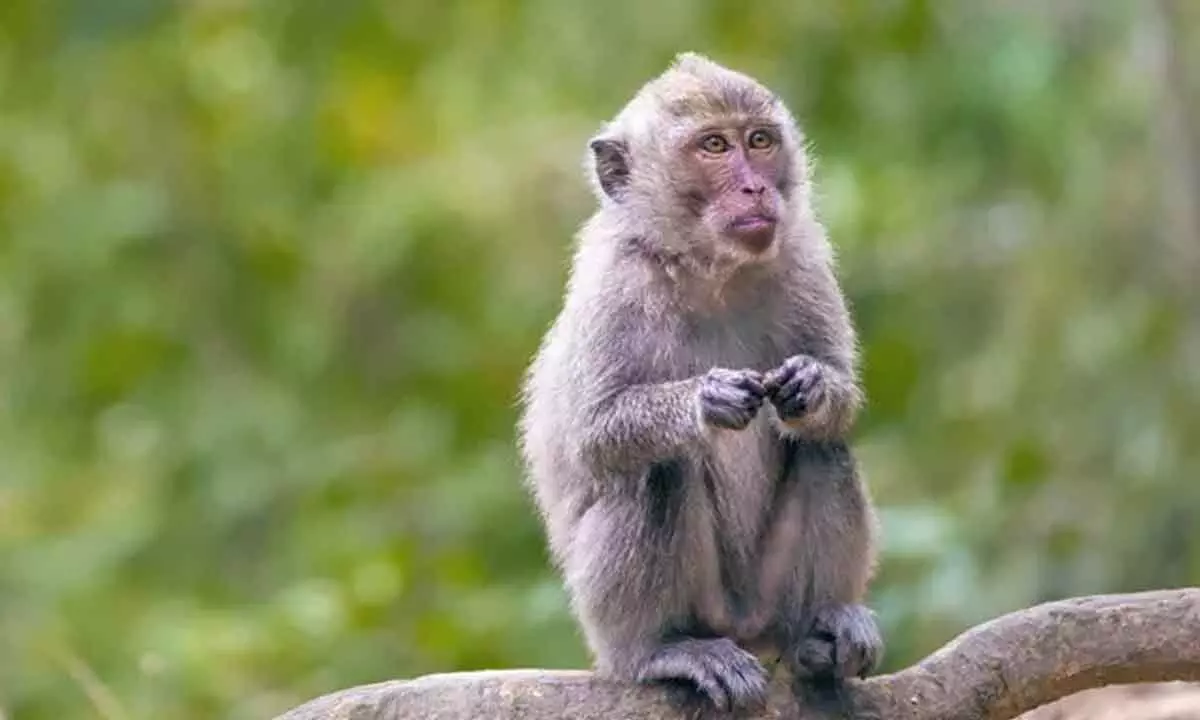Antibodies from monkeys shows promise against Covid variants

US scientists have identified antibodies in monkeys that may help in the development of next-generation vaccines which can offer additional protection against emerging SARS-CoV-2 variants and other SARS-related viruses.
US scientists have identified antibodies in monkeys that may help in the development of next-generation vaccines which can offer additional protection against emerging SARS-CoV-2 variants and other SARS-related viruses.
The team from Scripps Research Institute in California identified the antibodies, from rhesus macaque monkeys, that are effective against many different SARS-CoV-2 variants, as well as other SARS viruses like SARS-CoV-1, the highly lethal virus that caused an outbreak in 2003.
They found these neutralising antibodies recognise a viral spike region that is relatively more conserved, meaning that it is present across many different SARS viruses and is therefore less likely to mutate over time.
The findings, published in Science Translational Medicine, showed that certain animals are surprisingly more able to make these types of "pan-SARS virus" antibodies than humans, giving scientists clues as to how to make better vaccines.
"If we can design vaccines that elicit the similar broad responses that we've seen in this study, these treatments could enable broader protection against the virus and variants of concern," said senior author Raiees Andrabi, an investigator in the Department of Immunology and Microbiology.
In the study, rhesus macaque monkeys were immunised with the SARS-CoV-2 spike protein -- the outside portion of the virus that allows it to penetrate and infect host cells.
Two shots were administered, resembling a similar strategy used with currently available mRNA vaccines in humans. Unlike these vaccines, however, the macaques were shown to have a broad neutralising antibody response against the virus-including variants such as Omicron.
Exploring the antibody structures, the team found these antibodies recognise a conserved region on the edge of the site where the spike protein binds to host cells, called the angiotensin converting enzyme 2 (ACE2) receptor binding site. This is different from the region where the majority of human antibodies target, which overlaps more with the ACE2 receptor binding site and is more variable to change.
"The antibody structures reveal an important area common to multiple SARS-related viruses. This region to date has rarely been seen to be targeted by human antibodies and suggests additional strategies that can be used to coax our immune system into recognising this particular region of the virus," said Ian Wilson, DPhil, Professor at the Institute.
Further, the team said it's important to note that the macaque's gene coding for these broad neutralising antibodies -- known as IGHV3-73 -- is not the same in humans. The dominant immune response in humans is related to the IGHV3-53 gene, which produces a potent but much narrower neutralising antibody response.
However, the scientists say this discovery opens the door to rationally design and engineer vaccines or vaccine-adjuvant combinations that elicit more broad protection against SARS-CoV-2 and its many variants.
"According to our study, the macaques have an antibody gene that offers them more protection against SARS viruses. This observation teaches us that studying the effect of a vaccine in monkeys can only take us so far but also reveals a new target for our vaccine efforts that we might be able to exploit by advanced protein design strategies," added Dennis Burton, co-senior author and chair of the Department of Immunology and Microbiology.








